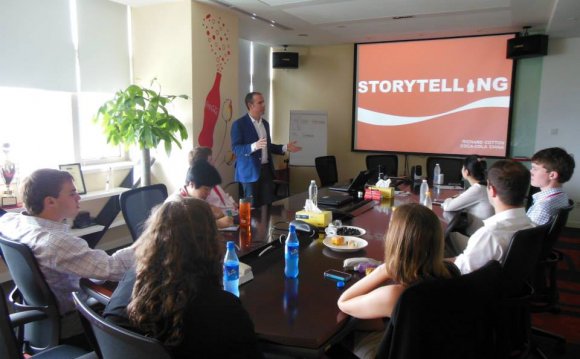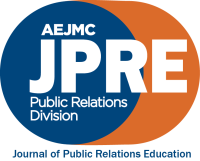

Editorial Mission
The Journal of Public Relations Education (JPRE) is devoted to the presentation of research and commentary that advances the field of public relations education. JPRE invites submissions in the following three categories. All submissions should follow the guidelines of the Publication Manual of the American Psychological Association (APA).
Research Articles: Manuscripts are expected to demonstrate that the pedagogical research is theoretically grounded and offers significant contributions to public relations education. All methods of research are considered. Manuscripts should be a maximum of 8, 500 words including figures, tables and references.
Teaching Briefs: Briefs are short articles that are likely to focus on the process of educating students. Topics may deal with teaching approaches, instructional materials, assessment practices, and related topics. Preference will be given to manuscripts that include assessment of the suggested practice and detailed guidelines for implementation. Manuscripts should be a maximum of 3, 000 words including figures, tables and references.
Book/Software Reviews: If you would like to volunteer to be considered for a review or would like to suggest a work for review, please contact the editor.
History
The Journal of Public Relations Education (JPRE) was approved by the membership of the Public Relations Division of AEJMC at the annual meeting during the 2014 conference in Montreal. JPRE replaces and expands upon the PRD’s long-running pedagogy publication, Teaching Public Relations Monographs (TPR). TPR offered brief articles presenting the results of teaching research or offering suggested classroom practices. JPRE will continue to offer these brief articles on the teaching but will also publish longer articles presenting the results of theoretically grounded research, as well as reviews of books, textbooks and software that may help to guide readers’ choices.
Audience
JPRE is for public relations scholars, students, and practitioners, as well as students and professionals in allied communication and mass communication disciplines.
Requests for Permissions
Permissions requests should be addressed to:
Our Editorial Staff
For more information about the editorial staff, visit .
For Authors
Manuscript Submission Guidelines: The Journal only accepts electronically submitted manuscripts. For complete guidelines and formatting requirements, visit .
international foods what is a business corporation ishop worldwide when you support a small business quote what does moq stand for in business friendly society adapt worldwide how does a business partnership work how to change ownership of a small business uk worldwide box office 2022 marketing communication plan christmas wreath ideas international relations how to add business to linkedin coworking space stratford london worldwide box office facebook what is llc business outdoor chairs stylish eid mubarak images christmas crackers what does a business development executive do gestures nonverbal communication womens christmas jumpers universal credit christmas payments 2022 outdoor active how to manage business jump international maidstone newcastle building society savings outdoor chiminea coworking wales













